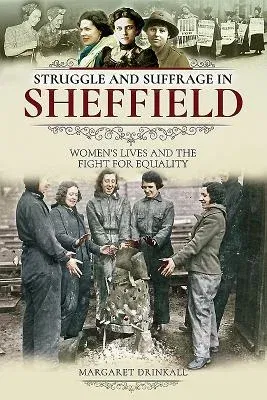This book looks into the role of women of Sheffield and how it has
evolved from the powerlessness of a woman involved in a wife sale, to
the achievement of the election of its first female Lord Mayor. Using,
newspapers of the period, archive material and modern photographs, this
book examines how the role of women slowly changed in the city. It also
highlights the militancy of the Sheffield suffragettes who not only
organized demonstrations in Sheffield, but also sent groups to take part
in some of the most notorious demonstrations in London. Following these
demonstrations several local women were badly manhandled by police
before being arrested and sent to Holloway Prison. Adela Pankhurst tried
at first to bring the women of the Sheffield WSPU to achieve the vote
through peaceful means, only when the Conciliation Bill of June 1910 was
dropped, did she then encourage them to take more militant action.
Following the outbreak of both world wars the women of Sheffield worked
in the steelworks making munitions. They worked day and night shifts
often as bombs were falling about them, but when both wars ended they
were abruptly dismissed, often with little notice as the men returned to
take up their former jobs. Not until 2010 did the women of Sheffield get
thanks or any kind of recognition for their services during both world
wars. Only following a meeting with PM Gordon Brown and the erection of
a bronze statue of Women of Steel in 2016, did Sheffield women truly get
the acknowledgment they deserved.

